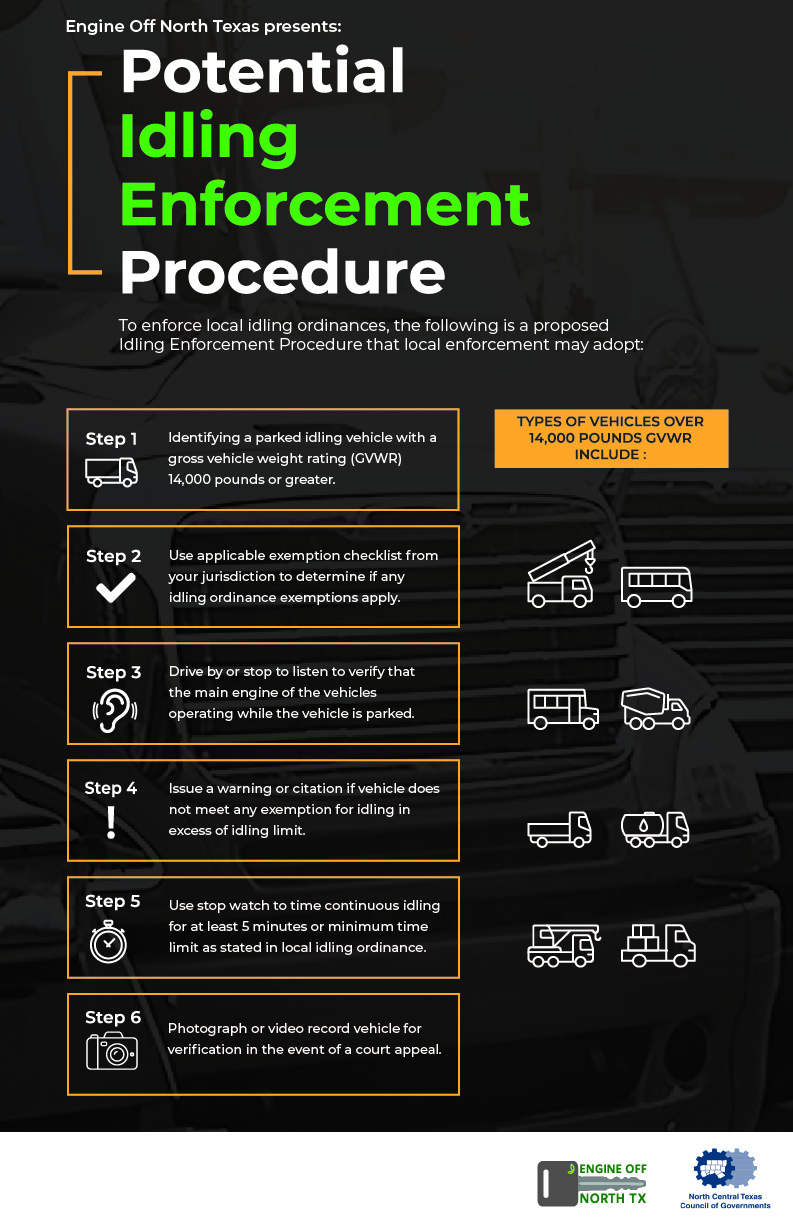Enforcement
It is the responsibility of local government to determine necessary enforcement personnel and procedures to identify and cite violators and log citations for reporting. NCTCOG maintains an idling complaint hotline, vehicle emissions inspection database, and can provide training to law enforcement on idling enforcement options.
There are several options available related to idling enforcement. NCTCOG has resources available for local law enforcement to use and have provided an example of potential idling enforcement procedure below.

Officers can investigate idling violations based upon complaints received and issue citations as necessary. Specific complaints may be reported directly to the local enforcement division. Complaints may also be submitted through NCTCOG’s website or toll-free number and will be forwarded regularly to participating local enforcement agencies to help identify idling hot spots.
The owner of the idling vehicle will be mailed information on local idling restrictions as well as technology options and funding opportunities to reduce idling. In addition, NCTCOG will periodically forward this information to participating jurisdictions, as applicable, to help local enforcement agencies target areas of frequent idling.
- Report an Idling Vehicle Online
- Report by Phone Toll Free: 1-877-NTX-IDLE (1-877-689-4353)
Enforcement personnel can periodically patrol areas known for excessive idling including truck stops, loading docks, warehouses, construction material pick-up/drop-off sites, service roads, and parking lots, and issue citations as necessary.
NED assists local law enforcement personnel track vehicle emission inspections. This database is available to enforcement officers in the DFW non- attainment area (see Appendix 8) that have signed an interlocal agreement with the NCTCOG.
Every local government operates differently and there may not be a one size fits all solution. However, being able to learn how other local governments enforce their idling ordinances can help provide solutions to common issues encountered.
Local government can employ fulltime enforcement personnel dedicated solely to enforcing environmental codes, including idling, throughout the jurisdiction. Officers patrol the enforcement area, including areas know for high levels of idling, respond to idling complaints, investigate possible idling violations, and issue citations as necessary.
Also, below are a few questions that should be considered when deciding how to enforce an idling ordinance.
- What will be the citation for a vehicle be once confirmed is idling?
- What will be the fine?
- Who would be cited, driver, owner, property owner, or any combination thereof?
- How should the citation be prosecuted through the courts?
Staff Contacts
Trey Pope
Jason Brown
